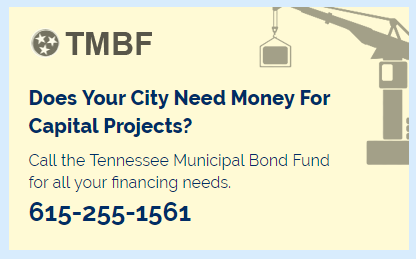Most Recent Action
Under legislation enacted in 2010, cities that conduct their own inspections (or contract for the same) and enforce codes violations are authorized to create an administrative process as an alternate means of enforcing certain codes violations. Under the law, cities desiring to adopt the administrative process are required to adopt an ordinance and secure the services of a state-certified administrative hearing officer. Our hope is that this alternate enforcement method will allow for the creation of a process that encourages and facilitates compliance with codes, while affording a more meaningful penalty for those that disregard citations, refuse to bring their property into compliance, or to pay the penalties assessed. You may find links to the following: 1. Law enacted (Public Chapter 1128 of 2010); 2. Video summarizing the key components of the law; and 3. Guidance for those considering implementation. 4. Survey to determine level of interest in program. Qualified individuals interested in receiving their state certification as an administrative hearing officer must complete a course administered by the State. Currently, TML and MTAS are working with the State to arrange for a certification course to be conducted in Nashville in early September. Additional details will be provided soon. PLEASE REFER ALL INQUIRIES TO TML STAFF AT 615-255-6416 In order to determine the level of interest and to better assist those cities interested in moving forward with adoption of an ordinance, identification of a partner-city, certification of a hearing officer and implementation of the administrative process, please take a few minutes to complete a short survey. The survey may be accessed here.
Background
State law authorizes municipalities to adopt and enforce building and property maintenance codes for the purposes of protecting the health, safety, and welfare of citizens and can negatively impact surrounding property values. Violations of building and property maintenance codes primarily occur during the construction of residential or commercial structures or additions thereto. When violations of these building and property maintenance codes occur, they are cited to municipal court where a fine is assessed. Municipal courts impose fines. Fines are civil penalties that are either punitive or remedial in nature. If a civil penalty is imposed for the purposes of enforcing the law and for punishment for the violation of the law, then it is a punitive fine. However, a fine is considered remedial in nature if its intent is to encourage prompt compliance with the law and it serves as compensation to an aggrieved party. Article VI, § 14 of the Tennessee Constitution states that no judge may assess a citizen a fine in excess of $50. In 2001, the Tennessee Supreme Court ruled that municipal civil penalties in excess of $50 violate the Tennessee Constitution if their purpose is punitive rather than remedial. Accordingly, no municipal court may impose a punitive fine in excess of $50, unless it can demonstrate the fine is a remedial penalty.
In May 2009, the Tennessee Supreme Court further clarified when it held that the $50 fine clause of the State Constitution only applies to the judicial branch of government.
Problem
The objective of municipal property and maintenance codes is to protect the health, safety and welfare of the residents of a community and municipalities enforce these codes in order to ensure this objective.
When violations of municipal codes are identified, the offender is cited and must pay a $50 fine. The only avenue open to an alleged violator seeking to challenge a citation is the legal system.
Some violators pay the fine and, in addition, take the additional steps required to eliminate the violation and comply with the ordinance. Others may pay the fines and elect not to make any changes to bring the property or structure into compliance with the ordinances.However, some will simply ignore the fines and violations altogether; forcing the city to compound the amount of the fine or to pursue legal action.
The intent of these ordinances is not to empower municipalities to levy punitive penalties or to promote lawsuits but rather to ensure that residents are aware of the requirements and that structures and properties are built and maintained in a manner that is safe for the occupants and the community. To that end, the current method of enforcement has proven to be punitive, inequitable, and ineffective.
Proposed Remedy
As an alternative, this bill offers certain cities the opportunity to create an administrative process – modeled after the state administrative hearing procedures – to promote compliance with building and property maintenance codes.
In addition, this process affords violators the opportunity to challenge a citation and provides a grace period within which violations may be corrected without the violator incurring a penalty.
Provides that certified administrative hearing officers have the authority to conduct hearings, issue orders, and to assess penalties for non-compliance with an order.Further provides such officers discretionary authority to determine whether violation has occurred, to establish a time frame (grace period) within which the violator should reasonably be able to correct the violation, and to assess a penalty for non-compliance with an order.
Specifies that an alleged violator may have any hearing cancelled, order vacated, or pending penalty nullified by demonstrating that the cited violation has been corrected within the allotted grace period.
Protects alleged violators’ right to seek judicial relief in chancery court with an appeal to the court of appeals.This right may be exercised at any point in the process and is not contingent upon the issuance of any order.
Provides that the costs must be fully offset by fees enacted:
- Requires municipalities that elect to adopt to bear the cost of the fees for administrative hearing officers serving their jurisdiction.
- Authorizes MTAS to set and enact appropriate fees for the training and continuing education requirements imposed under the bill.



